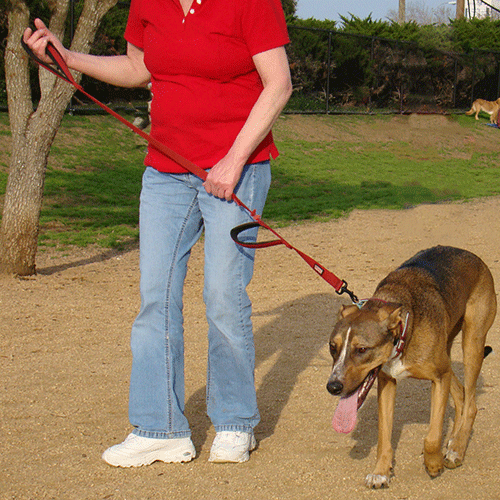
It is well-known that there are many benefits to returning a dog in a shelter. But what are the drawbacks? Learn more. There are several reasons a dog may be returned to a shelter: Unrealistic expectations; Incompatible with other pets; Bad behavior; Previous ownership history. These factors will likely make it harder to decide whether to adopt a dog. You should consider many factors before making this important decision.
Unrealistic expectations
Returning a dog from a shelter reduces chances of adoption by 60%. A person may have unrealistic expectations about what it means to own a pet. The owner's expectations regarding the animal's benefit are unlikely to be well founded. However, this may have contributed to pet ownership dissatisfaction. Dog owners may have unrealistic expectations of their dogs. This could also be due to bias in favor. Some people may surrender animals to shelters due to behavioral issues or housing problems, or because they are not compatible with their current pets.
Many dogs are brought back to shelters from a variety of reasons. Nearly 90% of dogs are returned to shelters because they have behavior problems, according to the study. Aggression towards humans was the most prevalent behavior problem. These aren't necessarily the only reasons dogs should be returned to their owners, but they do seem to be quite common. Wells, Hepper said that aggressive behavior toward people and animals is one of the top reasons dogs are returned to the shelter.
Many people make the mistake of believing that a 12-week-old puppy can be house trained and will sleep through most nights. In reality, it is very unlikely. We still poo several times per day, even though it has been here for three months. In the end, humans have unrealistic expectations for dogs and should not expect a 12 week old puppy to be perfectly house-trained and sleeping through the night.
A dog should not be returned to the shelter for aggressive behavior, behavioral issues, or incompatibility between humans and other pets. The owner may have unrealistic expectations about the dog and their return to the shelter. This could lead to the pet not getting the best care. To ensure a successful adoption, you need to be realistic about your expectations of the pet.
Pets are not compatible
Although some people return to the shelters with bad behavior, almost a quarter of those who did so adopted another animal from that shelter. However, one in ten also said that their desire to adopt another animal was decreased as a result of their unsuccessful experience. Many returning owners did nothing to change their animal preferences. Half adopted a dog with a different breed and sex.

Post-adoption success rates were also lower for those who had unrealistic expectations. Those with unrealistic expectations and pets with a history of bad behavior had lower post-adoption success rates. Adoption success rates were also affected by animal behavior. Adoption success is reduced by a behavioral match with an adopter. An animal not being compatible with the previous owner is not grounds for adoption.
Bad behavior
Bad behavior is the main reason dogs are returned to shelters. These behaviors can include urinating inside, chewing on things, separation anxiety, or loud barking, whining, or howling. With patience and training, most bad behavior can be corrected. Here are some helpful tips to help you correct bad behavior and prevent your dog from becoming a shelter-dog. Dogs' personalities can have an impact on their behavior.
Staff members administer surveys to all animals who return using an electronic tablet. Survey forms ask for a detailed explanation of the reason for return. These data are added to the ShelterLuv record of the animal, which will help in future adoption discussions. Written explanations of the reasons for returning are included as part of the survey responses. The shelter will be able to better understand the reasons for bad behavior by using the data.
If you decide to surrender a dog to shelters, it is important to give an honest explanation as to why. It is not okay to lie or misrepresent your situation. The shelter staff is happy to help you explain why the dog was returned. Animal welfare workers have one goal: to provide good homes for dogs. It can be hard to do this, especially if the dog has had bad behavior in the past.
Many reasons can be given for a dog being returned to a shelter. There are many reasons to surrender a dog to a shelter. While certain behaviors can sometimes be curtailed with training, many owners don’t have the time and money. Trainers often recommend rehoming dogs after a bite incident. This can help prevent future behavior from occurring. This is especially important if the pet's bites are part of a larger family. This can cause a bad relationship between the pet’s owner and the pet.
Previous ownership history
In a study, animal-owners with previous ownership history were 40% less likely to return the animals than those who had never owned a dog before. The reason for this disparity was unclear, but the findings did support the notion that the prior ownership experience may impact the likelihood of subsequent adoption. The study also found that the likelihood of adoption after a return was not affected by the previous owner's sexual history.
Although the dog may be legally owned by the owner, it does not necessarily mean that the dog is worthy of being kept. It is important to consider the best interest of your dog when you return it to a shelter. This will help you make an emotional decision and will also make your dog happier. The shelter may still be subject to legal action if they have proof of the shelter's violation.
This is a good time to consider moving on and finding another shelter or rescue. You should communicate with the new organization in advance, but remember that past ownership does not guarantee future adoption. Some agencies take the time to interview potential adopters. Others have strict rules about animal acceptance. It is essential to choose the best organization for your dog. You should consider many factors when choosing a new shelter.
Stress involved in re-homing a canine friend

The stress of re-homing a dog can cause a wide range of behaviors. These behaviors could range from quieting down to being vocal, ill-mannered and aggressive. Shut down, for example, describes a dog that is unresponsive and unusually inactive. It can even resemble near-catatonia. Some cases are less severe, but they can be well-behaved.
Rehoming a pet dog isn't always easy. But it can be very rewarding for both the dog (and the owner)! The best solution for a dog is to find a responsible home that can provide love, stability, and good food. You should ensure that the person adopting your dog has some experience with dogs. Make sure the person is serious about adopting a dog, and pay a re-homing fee. It may help to talk to friends and relatives who have adopted dogs and can give you their tips.
Many dogs are brought to the shelter because of behavioral problems. These issues include fearfulness, housetraining difficulties, escape, and other behavioral problems. The need to find a new place for your dog can be caused by excessive barking, housebreaking and other undesirable behaviors. Unsuitable matches are another reason dogs may need to be re-homed. Shelters might be the best option for dogs who have been neglected or abused.
Re-homing a dog to the shelter can be an emotional or physical experience for both the new owner and the dog. Stress can cause anxiety and delay the dog's adjustment. Although dogs are often adopted from better environments, moving can slow down the process. Understanding how dogs handle stress will help bond you and your pet, and make the transition smoother.
FAQ
What should I consider before getting an exotic pet?
There are several things to consider before you buy an exotic pet. First, decide if you intend to keep the pet as a pet or sell it. If you are keeping the animal as your pet, ensure that you have enough space. You also need to know how much time you'll spend caring for the animal. You will need to take time to look after an animal. But, they are worth it.
You must find someone to purchase your animal if you intend to sell it. You must ensure that the person purchasing your animal knows all about taking care of them. It is important to not overfeed your animal. This could cause problems for your animal's health later.
You should research every aspect of exotic pets before you buy them. There are many websites that can give information about different species of pets. Avoid falling for any scams.
What are three things that you need to consider before getting a cat?
These are the questions to ask before you buy a cat.
-
Does the cat have any health issues?
-
Can the cat eat all of my food?
-
Do I want a cat to love cats or just a pet?
Do I decide to get a dog or a cat?
Your personality will determine the answer to this question. Some people love kittens, while others prefer puppies.
But, in general, puppies tend to be more active and playful. Kittens tend to be very gentle and sleep a lot.
Both types of animals need lots of attention from their parents. They will grow up quickly and need a lot of care.
They will also need to be checked on a regular basis. This means that you will have to spend some time with them at the vet.
What are the responsibilities of a pet owner?
A pet owner must love his/her pet unconditionally. They must also take care of their basic needs, such as shelter, food, water, and shelter.
They must also teach their pets how to behave. Pet owners should not neglect their pet.
He should also be responsible enough and able to take care of it.
Statistics
- Reimbursement rates vary by insurer, but common rates range from 60% to 100% of your veterinary bill. (usnews.com)
- In fact, according to ASPCA, first-year expenses can sum up to nearly $2,000. (petplay.com)
- It's among a relatively few companies that provide policies with a full (100%) coverage option, meaning you are not responsible for any co-payment of bills. (money.com)
- It is estimated that the average cost per year of owning a cat or dog is about $1,000. (sspca.org)
- Monthly costs are for a one-year-old female mixed-breed dog and an under one-year-old male domestic shorthair cat, respectively, in excellent health residing in Texas, with a $500 annual deductible, $5,000 annual benefit limit, and 90% reimbursement rate. (usnews.com)
External Links
How To
How to train a pet cat
To properly train your cat, first you must understand his/her nature. Cats have complex brains. They are intelligent animals, and they are also highly emotional creatures. You must consider your cat's personality if you want them to behave well. You have to learn how to take care of your cat.
It is important that cats remain independent. They do not like being told "no". So if you tell them "no," they may get angry at you. If your cat does something wrong, don't force them to do it. Your cat needs love and affection, but it does not mean you can treat him/her like a human being.
If you suspect that your cat may have some issues, then it is best to work together to fix them. Try to talk to him/her calmly and gently. You should not yell at them/her. You can make him/her feel worse by shouting at you. Your cat cannot be forced to eat. Sometimes, he/she will refuse to eat. You should offer treats to your child when this happens. Overeating could result in overeating.
Keep your cat clean. Each day you should thoroughly clean your cat. Use a moist cloth to remove dirt and dust. Check to make sure your cat is free of fleas. Flea bites may cause skin irritation or allergies. Flea bites can cause skin irritation and even allergies. To get rid of them, you will need a shampoo that is specifically designed for fleas.
Cats are social animals. They love spending time with people. You should spend quality time together with your cat. Play with your cat, play with him/her and give him/her a bath. These activities will make you cat happy.
It is important to start training your cat early if you want to be successful. When your kitten is just two weeks old, you should begin training him/her. Your kitten should be around three months old to start training him/her. Your cat will be fully grown at this age and ready to learn new skills.
If you are teaching your cat tricks, it is important to explain each step clearly. When teaching your cat how to sit, for example, show it the chair first. Then, reward your cat by giving him/her a treat. Continue this process until your cat understands.
Remember that cats are smart animals. They can easily figure out how to perform tasks. However, they still require patience and persistence. It is unrealistic to expect your cat can master a task immediately. Give him/her plenty of time to practice before giving up.
Never forget that cats are wild animals. They are playful and naturally curious. If you let your cat run free, he/she might accidentally knock objects away. To avoid accidents, you should place your cat in a safe area where he/she won't hurt himself/herself.